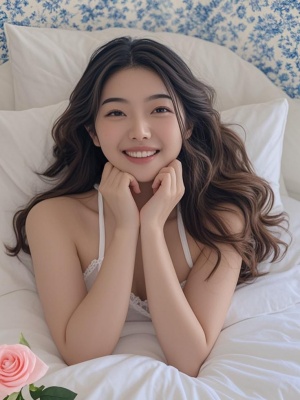The Captivating World of Abstract Portrait Artists
Introduction: Redefining Portraiture Through Abstraction
Abstract portrait artists challenge traditional notions of representation by distorting, fragmenting, and reimagining human features through bold artistic expressions. Unlike conventional portraitists who aim for realistic likenesses, these visionaries explore emotional truths and conceptual ideas through innovative techniques. From Picasso's Cubist experiments to contemporary digital creations, abstract portraiture continues to evolve as one of art's most dynamic genres.
At MediaAI's gallery, visitors can witness how modern technology merges with artistic abstraction to create stunning portrait transformations. The intersection of human creativity and AI tools opens new possibilities for this centuries-old art form.
The Evolution of Abstract Portrait Techniques
Historical Foundations
The roots of abstract portraiture trace back to early 20th century movements:
- Cubism (Picasso, Braque) - Fragmenting facial planes
- Expressionism (Kandinsky, Münter) - Emotional color distortions
- Surrealism (Dalí, Magritte) - Dreamlike facial transformations
Contemporary Digital Revolution
Modern abstract portrait artists leverage digital tools to push boundaries further. Techniques include:
- Generative AI algorithms that reinterpret facial structures
- 3D modeling software for dimensional abstractions
- Neural style transfers merging portraits with artistic styles
Platforms like MediaAI's painting guide demonstrate how technology assists artists in creating abstract portraits that would be impossible with traditional media alone.
Problem-Solution Matrix in Abstract Portraiture
| Artistic Challenge | Abstract Solution | Example Technique |
|---|---|---|
| Conveying complex emotions | Color field distortions | Mark Rothko-inspired palettes |
| Showing multiple perspectives | Multifaceted compositions | Cubist facial fragmentation |
| Breaking from realism | Geometric simplification | Modigliani's elongated forms |
Mastering Abstract Portrait Composition
Successful abstract portrait artists employ several key compositional strategies:

- Negative Space Manipulation: Using empty areas to suggest facial features
- Texture Layering: Combining multiple media for tactile complexity
- Color Symbolism: Assigning emotional values to specific hues
As explored in MediaAI's portrait transformation guide, these techniques gain new dimensions when combined with digital tools. The balance between abstraction and recognition remains the artist's greatest challenge.
Conclusion: The Future of Abstract Portraiture
Abstract portrait artists continue redefining how we perceive human identity through art. As technology advances, tools like AI-assisted painting and generative algorithms will further expand creative possibilities. However, the human artist's vision remains paramount - technology serves as a brush in the hand of creativity.
For those inspired to explore this fascinating art form, resources like the MoMA's abstract art collection and Tate's educational materials provide excellent starting points to appreciate abstract portraiture's rich history and exciting future.